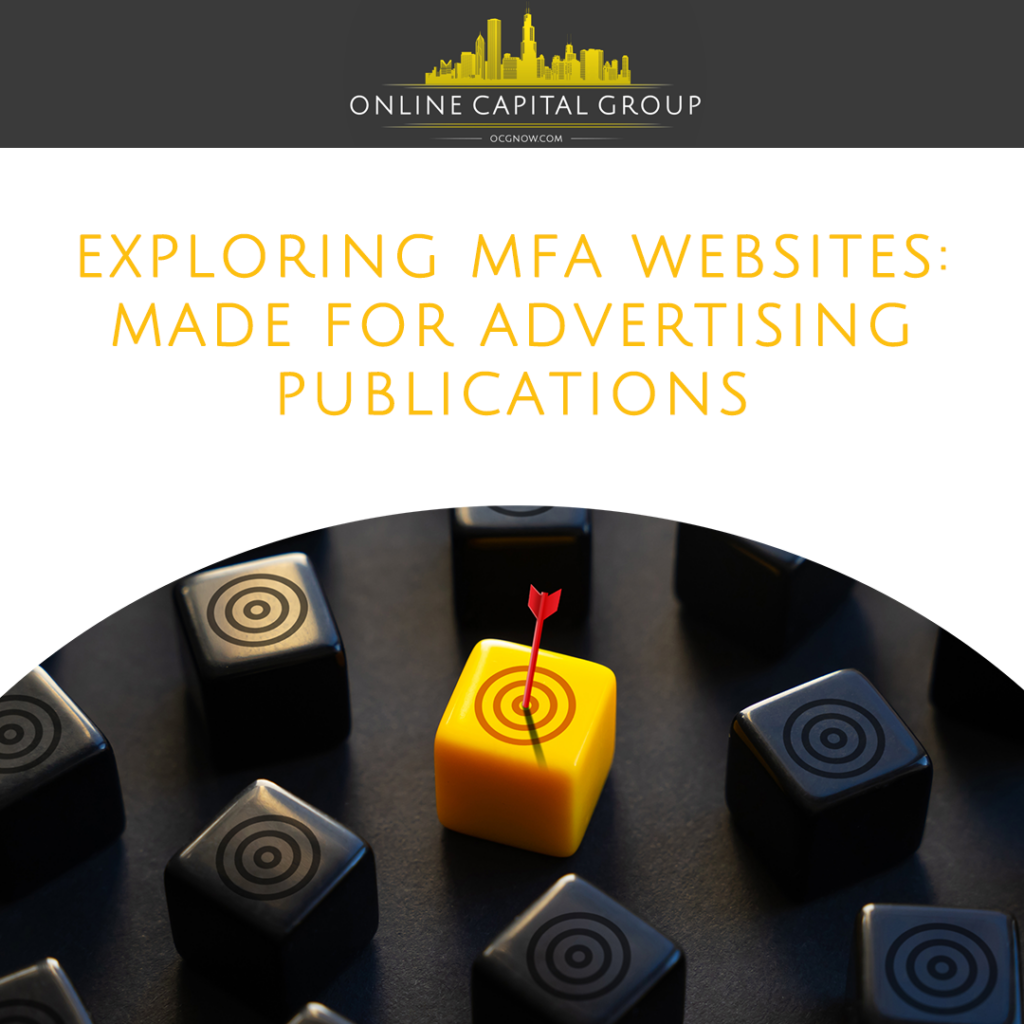 In the vast realm of the internet, you may have encountered the term “MFA” or “Made for Advertising” websites without fully comprehending its significance. MFAs are a somewhat enigmatic aspect of the digital landscape, often cloaked in ambiguity and, at times, controversy. To shed light on this topic, we’ll delve into the world of MFA websites, exploring what they are, how they operate, and their implications for both users and the online advertising industry.
In the vast realm of the internet, you may have encountered the term “MFA” or “Made for Advertising” websites without fully comprehending its significance. MFAs are a somewhat enigmatic aspect of the digital landscape, often cloaked in ambiguity and, at times, controversy. To shed light on this topic, we’ll delve into the world of MFA websites, exploring what they are, how they operate, and their implications for both users and the online advertising industry.
Unpacking MFA: What Does It Stand For?
MFA is an acronym for “Made for Advertising.” These websites, also known as Made for AdSense sites, are web platforms specifically designed to generate revenue through online advertising. Their primary purpose is to maximize ad impressions, clicks, and, ultimately, profits.
The Anatomy of MFA Websites
MFA websites typically share certain characteristics that set them apart from genuine, content-driven websites. Here are some defining features:
Thin Content: One of the most conspicuous traits of MFA websites is their thin, low-quality content. They often contain minimal, poorly written, or automatically generated content that lacks substantive information. This content is primarily intended to host ads rather than provide value to users.
Overabundance of Ads: MFA websites bombard users with an excessive number of ads. These ads can appear in various forms, such as display ads, pop-ups, and affiliate marketing links, to increase the likelihood of user engagement and, consequently, revenue.
Keyword Targeting: MFA websites often employ aggressive keyword targeting strategies to attract users searching for specific terms. They aim to rank highly in search engine results pages (SERPs) for these keywords, drawing in organic traffic.
Lack of Authenticity: These websites tend to lack authenticity and originality. Content is frequently duplicated or repurposed from other sources, contributing to their low-quality nature.
Emphasis on Monetization: The primary focus of MFA websites is monetization. User experience, informative content, and engagement take a backseat to the pursuit of advertising revenue.
The Operation of MFA Websites
Understanding how MFA websites function is crucial to grasping their significance in the digital landscape. Here’s a simplified overview of their operation:
Content Scraping: MFA websites often scrape or copy content from legitimate websites. They may use automated tools to generate content based on popular search queries or trending topics.
Keyword Optimization: MFA websites employ keyword optimization techniques to rank prominently in search engine results. They aim to attract users searching for specific keywords related to their chosen niche.
Ad Integration: Once users land on an MFA website, they are immediately exposed to an abundance of ads. These ads can be from various advertising networks, including Google AdSense, and are strategically placed to maximize clicks.
Revenue Generation: MFA websites earn revenue primarily through pay-per-click (PPC) advertising. Each time a user clicks on an ad, the website owner receives a small commission from the advertising network. The more clicks, the more revenue generated.
The Controversy Surrounding MFA Websites
MFA websites have garnered significant controversy and criticism for several reasons:
Low-Quality User Experience: MFA websites prioritize profit over user experience. The inundation of ads, thin content, and lack of genuine value can frustrate and mislead users.
Manipulative SEO Practices: To rank well in search engine results, MFA websites often employ manipulative SEO practices, such as keyword stuffing and content duplication. These tactics can negatively impact the integrity of search engine rankings.
Devaluation of Online Advertising: The proliferation of MFA websites can dilute the effectiveness of online advertising. Advertisers may see reduced returns on their investments due to lower-quality traffic from MFA sites.
Misleading Users: MFA websites sometimes employ deceptive tactics to attract users. This can include using clickbait headlines or misleading content to encourage clicks on ads.
Violations of Advertising Policies: Many MFA websites violate the advertising policies of platforms like Google AdSense. Such violations can lead to penalties, demonetization, or even removal from advertising networks.
The Impact on Legitimate Publishers and Advertisers
MFA websites can indirectly affect legitimate publishers and advertisers in the following ways:
Competition for Ad Space: The presence of MFA websites can intensify competition for ad space on legitimate platforms. Advertisers may need to bid higher to secure ad placements.
Reduced ROI: Advertisers may experience reduced return on investment (ROI) as a portion of their advertising budget is spent on low-quality traffic from MFA sites.
Ad Network Policies: Ad networks like Google AdSense continually update their policies to combat MFA websites. This can lead to stricter requirements and compliance measures for legitimate publishers.
How to Identify MFA Websites
Recognizing MFA websites can be challenging, but certain signs can help you distinguish them from legitimate sources:
Excessive Ads: If a website overwhelms you with ads and pop-ups, it’s a potential indicator of an MFA site.
Thin, Low-Quality Content: MFA websites often feature poorly written, uninformative content that lacks depth and value.
Keyword-Stuffed Text: Look out for web pages with content that appears unnaturally stuffed with keywords.
Unreliable Sources: Verify the authenticity of the website by checking for credible sources, authorship, and publication dates.
How Your Online Capital Group Can Help
MFA (Made for Advertising) websites represent a controversial and often detrimental aspect of the online advertising landscape. Their primary goal is to maximize revenue through an overabundance of ads and aggressive SEO tactics, often at the expense of user experience and authenticity.
Identifying MFA websites is crucial for users, legitimate publishers, and advertisers to ensure that advertising budgets are spent effectively and that the digital ecosystem remains a place of value and integrity. Vigilance, adherence to ethical SEO practices, and reporting suspicious websites are steps toward maintaining a healthier online advertising environment.
Give us a call today at (904) 600-3600 for more information about all things advertising and to get your brand out there in the ad space for maximum ROI.



